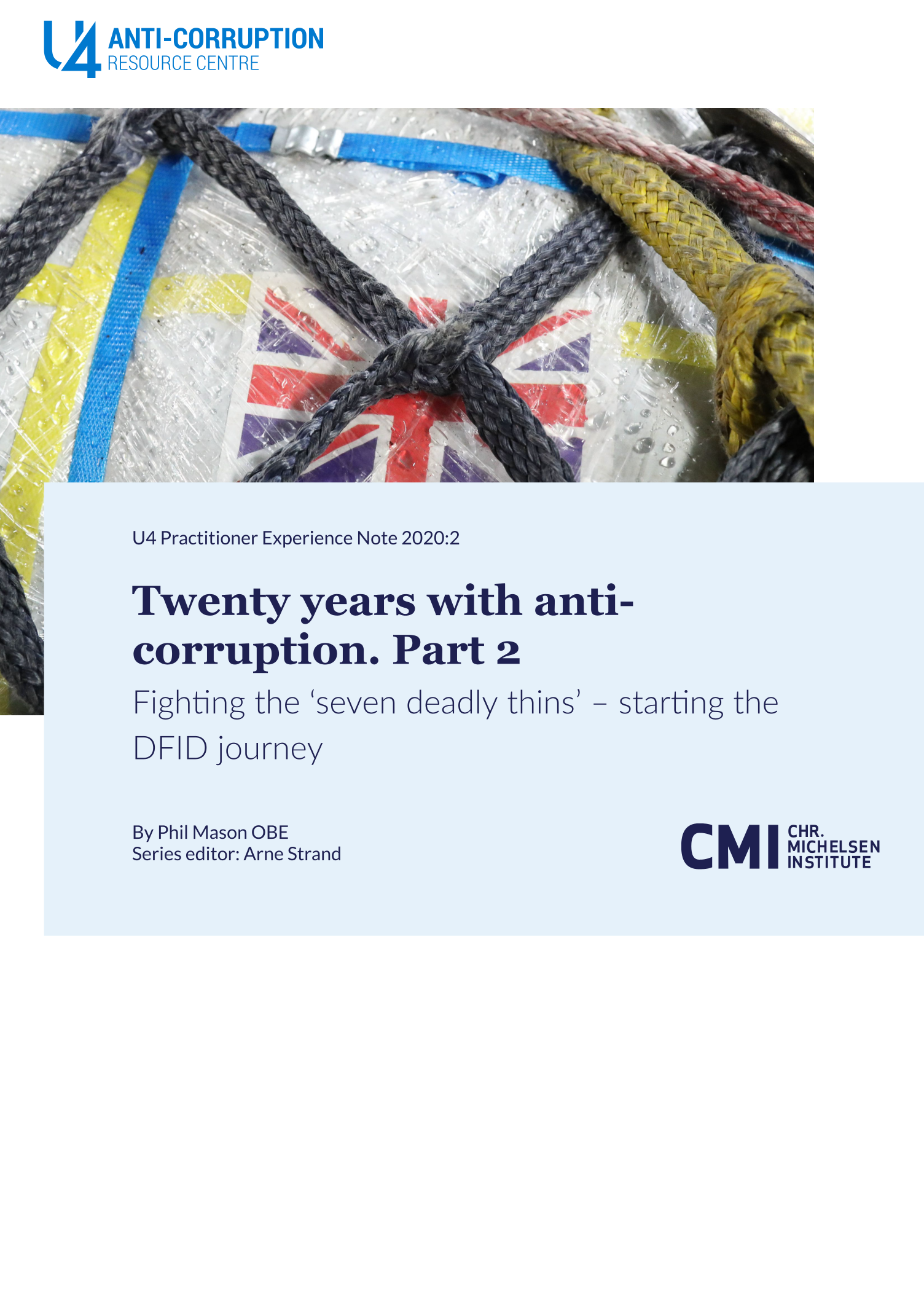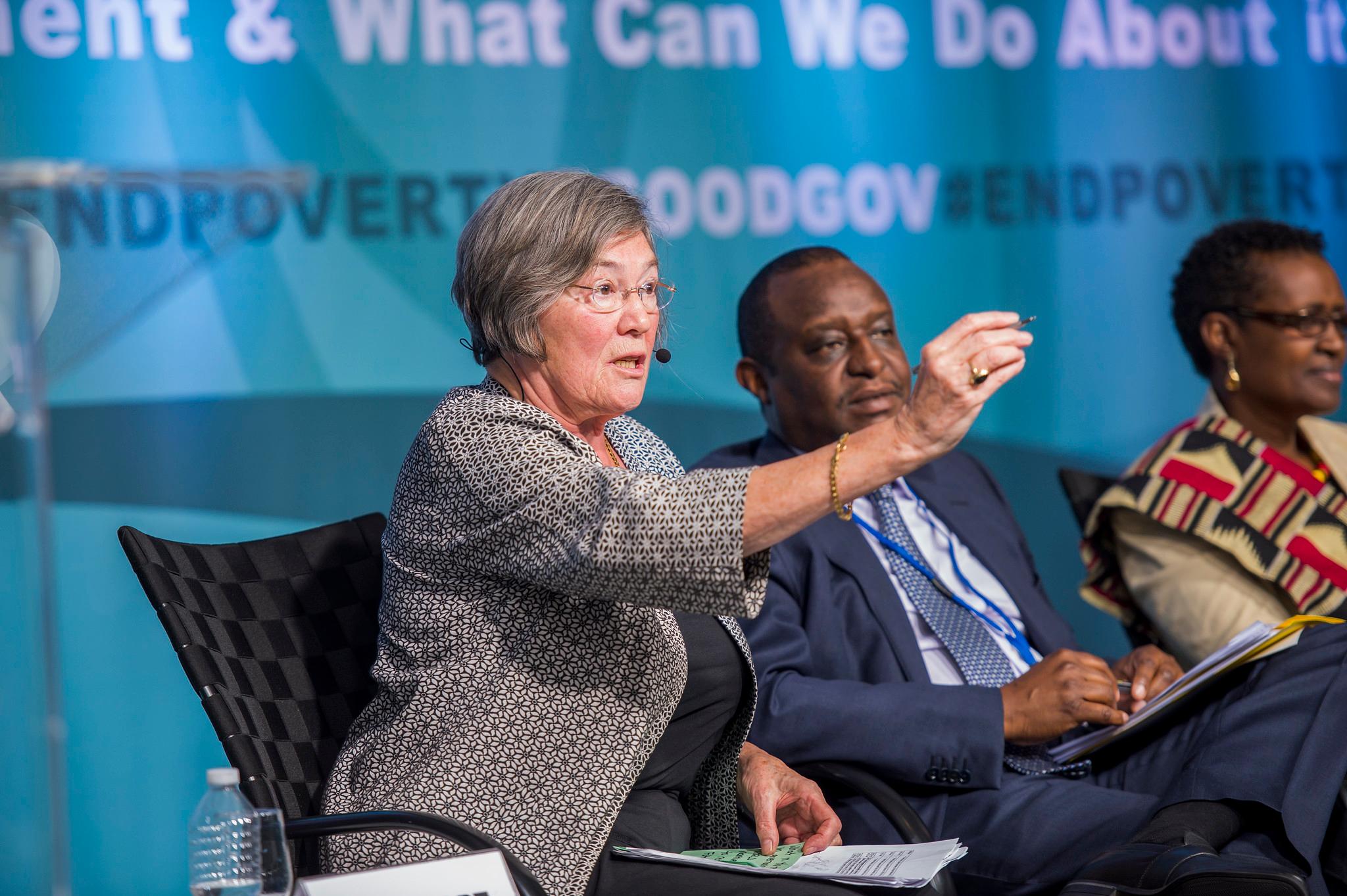Main points
- Political leadership was crucial for DFID’s success. It won’t always be present, but this should not mean that practitioners forsake preparations for the moment when a strong personality appears. Developing in advance, and keeping under review, innovative ideas can enable sudden windows of opportunity to be capitalised on.
- Practitioners must extend their horizons beyond the ‘victim’ country when tackling corruption, in particular to recognise the cross-border nature of the problem and that the donor’s own government may be part of the problem.
- Imaginative use of aid resources in domestic activities can unlock crucial capacity at home that addresses the ‘supply side’ of the corruption equation. This is entirely allowable under the OECD rules for Official Development Assistance.
- Clare Short’s mandate to DFID was truly radical. As practitioners, we (or rather I for most of the first few years before a team grew around me) were given licence to challenge orthodoxies, press for change in other departments as well as our own, and encouraged to think transformationally about our ambition at the global level.


